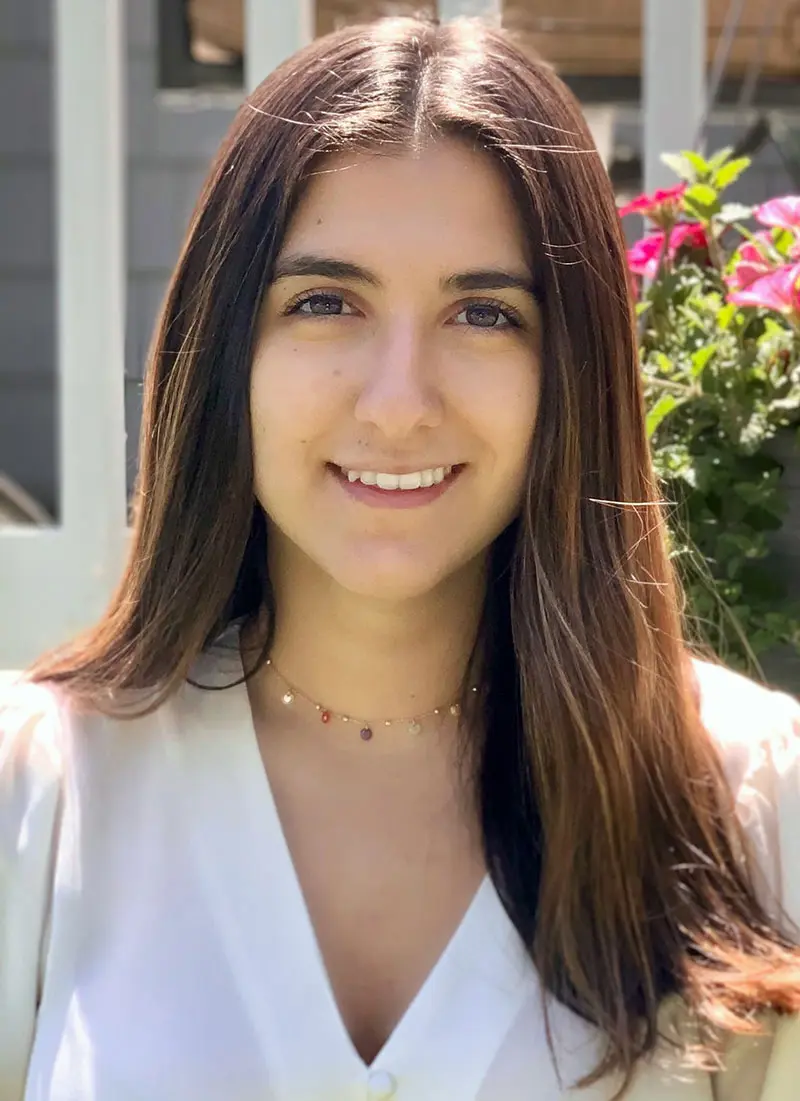Business administration major Nadine Chamoun wondered what she’d gotten herself into when she found out she’d be programming a robot as part of her summer internship at Needham Bank.
“I was second-guessing myself thinking, ‘I don’t know if I can do this,’” says Chamoun, a rising junior from Walpole, Mass.
But Chamoun, whose concentrations are in finance and management, knew she’d be challenging herself when she landed the information technology system development internship. Getting hands-on experience with robotic process automation — a quickly growing sector of the financial services industry — is a career-broadening skill that Chamoun hopes will jump off her résumé someday.
“Robots and artificial intelligence are the future of everything, even in business,” says Chamoun, who didn’t work with an actual, physical robot during her internship. Instead, she set up automation modules to teach an online robot to perform certain tasks such as working with Microsoft Excel spreadsheets.
“There was definitely a learning curve, but I’m so glad I’ve been able to learn how to do something like that,” says Chamoun, who was able to work on site as part of a socially distanced four-person IT team at the bank’s headquarters in Needham, Mass.
Given that many companies have had to cancel or scale back their internship and co-op programs because of the COVID-19 pandemic, Chamoun says it’s more important than ever for students to “be persistent and open-minded” in their searches.
“I was kind of open to anything, because any experience for me was a good experience,” says Chamoun, who estimates she applied to nearly 50 positions in Spring of 2020 after taking the Manning School of Business’ professional development seminar course as part of UML’s Professional Cooperative Education program.
When more than half of the positions that she’d applied for ended up being cancelled, Chamoun started to get discouraged. Then she saw the IT system development position at Needham Bank. After a brief phone interview in April and a follow-up interview in early May, she was hired.
“I was honestly shocked,” she says. “This was my first real full-time job, and it was great.”
Besides learning about robotic process automation, Chamoun helped the bank distribute federal Paycheck Protection Program loans to small businesses in the community.
“It was impressive how many jobs and companies the bank has helped save due to those loans,” she says.
Chamoun, whose parents hail from Lebanon, says she chose UMass Lowell after receiving a letter from the River Hawk Scholars Academy (RHSA), which supports first-generation college students such as herself.
“Knowing that I would have a community of wonderful people and resources standing behind me through my first year of college made it an easy decision for me,” says Chamoun, who now serves as a peer leader for RHSA, mentoring 15 first-year students each year.
She expects those students are going to need her support more than ever in the fall.
“Going into college your first year is already scary enough,” she says. “But this fall is going to be very different for everyone. It’s new to me, too, but I experienced a little of it in the spring. Hopefully I can help them out and make it as easy as possible. Even if I help one student out, it’s worth it.”
Chamoun, who belongs to the student organizations Joy Tong Women in Business and Leaders in Action, plans to earn a master’s of business administration degree before starting her career.
“I love the business school,” she says. “All of my professors have been great. They all come from different backgrounds in business, and it’s super cool to connect with them and learn how they got to where they are.”


